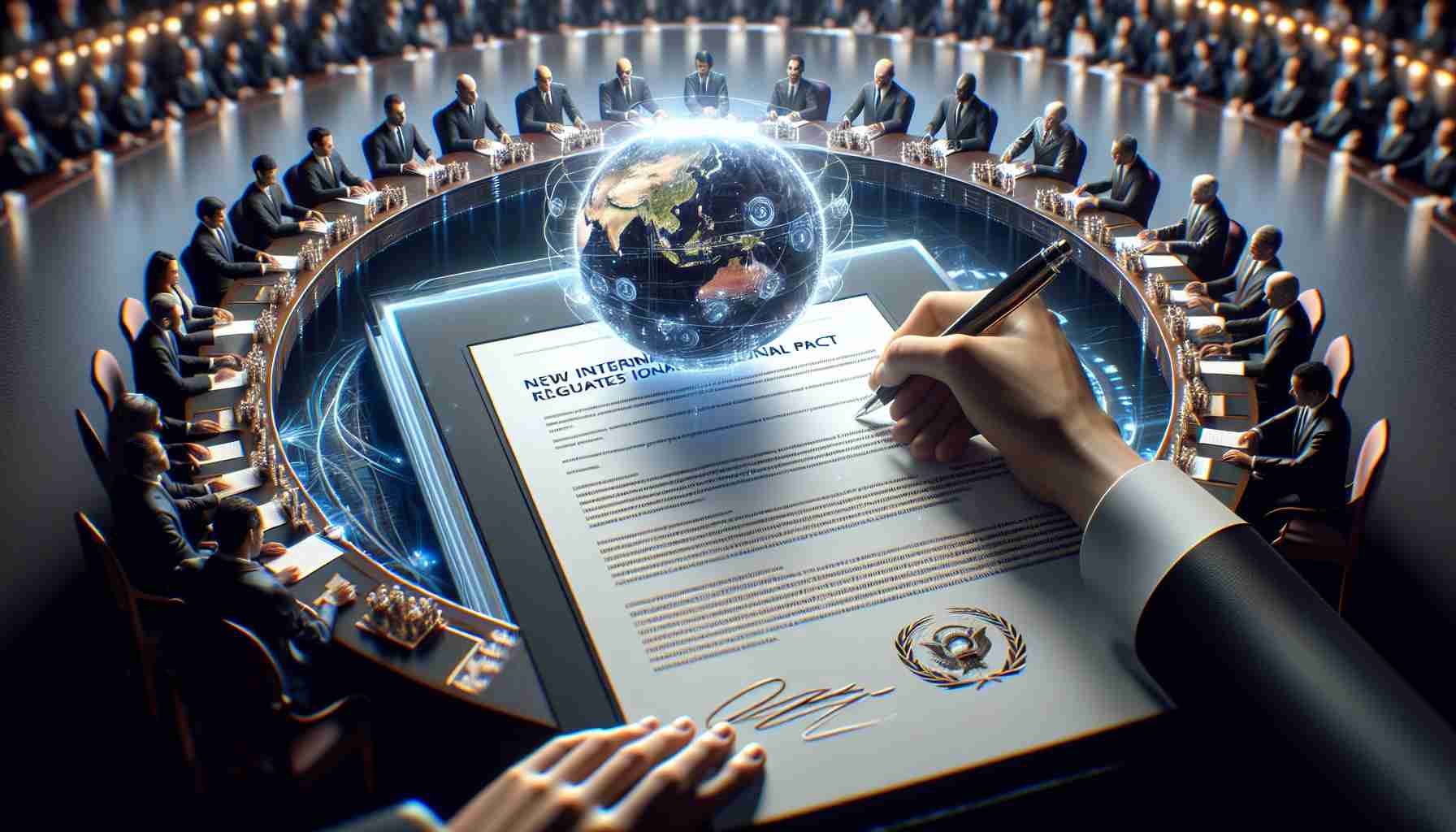A Landmark Treaty to Guide Ethical AI Implementation
In a significant step towards ensuring the ethical deployment of artificial intelligence (AI), the Council of Europe has announced the adoption of a groundbreaking treaty. This international legal agreement is designed to safeguard human rights, rule of law, and democratic principles across the use of AI systems both in public and private sectors.
The treaty presents a comprehensive legal framework addressing the entire lifecycle of AI systems. It specifically targets the risks associated with AI while simultaneously fostering responsible innovation. Marija Pejcinovic-Buric, Secretary-General of the Council of Europe, emphasized the urgency of establishing such international legal standards. She pointed out that these norms are backed by states across continents that share common values and aim to maximize the benefits of AI while mitigating its risks.
Countries signing the treaty must undertake measures to identify, assess, prevent, and mitigate possible risks posed by AI systems. Additionally, they must ensure accountability and responsibility for any negative impacts these systems may create, maintaining a commitment to equality, non-discrimination, and privacy rights throughout their application.
The treaty also explicitly prohibits signatory countries from using AI to undermine democratic institutions and processes. While nations are not bound by the treaty’s terms in activities that protect national security interests, they are required to ensure such activities respect international law and democratic values.
Heads of state are expected to formally sign the treaty on September 5 in the Lithuanian capital of Vilnius, marking a pivotal moment in the regulation of artificial intelligence worldwide.
The Importance of Global AI Regulation
The establishment of an international treaty regulating AI use is a response to the growing recognition of the potential risks associated with rapidly advancing AI technology. AI systems can significantly affect human rights, such as privacy through surveillance technologies, and can impact democratic processes through the potential for manipulating information or election outcomes.
Key Questions and Answers:
– Why is an international treaty on AI necessary?
AI technology is increasingly borderless, affecting individuals and societies worldwide. A common set of rules can help ensure that the benefits of AI are balanced with the need to protect human rights, democracy, and the rule of law.
– What challenges are associated with AI and human rights?
Potential challenges include discriminatory biases in AI algorithms, the erosion of privacy, and the manipulation of information, which can undermine democratic values and human autonomy.
Key Challenges and Controversies:
One challenge is ensuring that the rules are comprehensive and adaptable to technological development without stifling innovation. Additionally, there may be controversies regarding AI’s use in national security and surveillance, as countries might prioritize these interests over human rights. Another contentious point is the enforcement of such an international treaty and whether there will be effective compliance mechanisms in place.
Advantages and Disadvantages:
Advantages:
– Sets a universal standard for AI, supporting an ethical approach to AI development and deployment.
– Helps to prevent abuses of AI technology that could undermine human rights and democratic processes.
– Encourages transparency and accountability in AI systems’ lifecycle, thus potentially increasing public trust in AI applications.
Disadvantages:
– There may be limitations in the enforceability of international treaties, especially given the varying capacities and willingness of states to implement such regulations.
– The treaty might not keep pace with the rapid advancement of AI technology, leading to potential gaps in regulation.
– National security exemptions might be misused or broadly interpreted to circumvent treaty obligations.
To further explore topics related to artificial intelligence and human rights, you may visit the following official websites:
– Council of Europe
– United Nations
Overall, the new international pact to regulate AI use marks a significant stride in aligning global AI practices with the protection of fundamental human values, with the hope that it will serve as a robust framework to navigate the complexities of AI-related ethics and governance.
The source of the article is from the blog macnifico.pt

